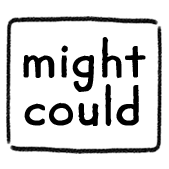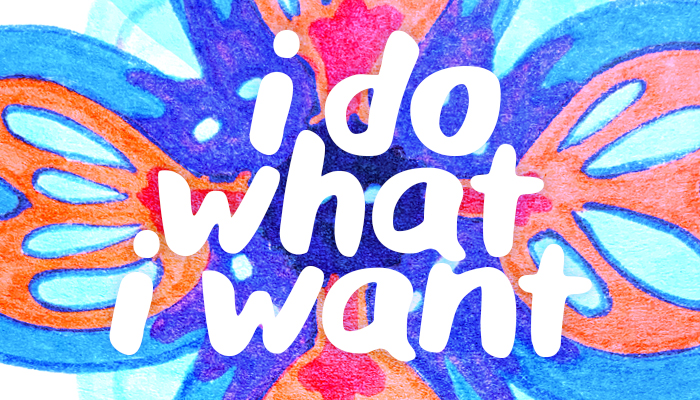
I’ve written about social media and artists before. But it’s something that’s been tugging at me again lately, and yesterday it all kinda came to a head.
I try my best to not care about followers and likes. But, you know, sometimes intentions are not strong enough, and I slip. Sometimes I post a drawing I quite liked, that goes on to be a total dud on Instagram. I never post with the intention of getting likes. But when one of my drawings gets very few likes, it’s hard not to have a reaction.
When that happens, my brain kicks into a series of automatic thoughts:
- Wow, why did no one like this drawing?
- Maybe I shouldn’t have posted it.
- Maybe I shouldn’t have drawn it.
- Maybe I should delete the post.
- Maybe I should try really hard tomorrow to make a “good” drawing to make up for this one.
I know this scene plays out for lots of other artists too. We get caught up in worrying about the number of likes, the “reach” of our posts, and the judgment bestowed on us by Instagram.
Any time spent worrying about that—what an invisible sea of people thinks of our work—is a harmful, unproductive waste of time.
This all ties back to the concept of changing our core beliefs. It’s something I learned when I was doing CBT (Cognitive Behavioral Therapy). The idea is that we all have core beliefs that affect our thoughts and actions. They can be positive (“I’m good at drawing”) or negative (“I’m bad at drawing”).
Good or bad, these core beliefs have a huge impact on how we go through life. They’re developed and ingrained in our brains over years of experience and repetition. That’s why they’re called beliefs—we believe them to be true.
But—although it’s hard—our core beliefs can be changed.
I’ve been working on changing my own for years now. One thing I like to do is talk back to my core beliefs. So that’s what I did yesterday when I was in that art-dud-Instagram-situation.
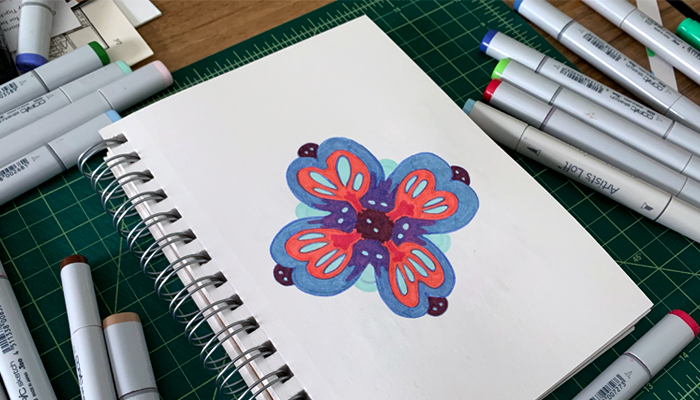
Here’s how it went down:
I made the drawing. I had fun. I posted the drawing. A couple hours later, I saw the posts had 4 likes. (For reference, I currently have over 6,000 followers. And 4 people liked the drawing.) Cue the automatic thoughts. “I guess the drawing sucks” “I guess I shouldn’t have shared it” “I guess Instagram thinks I don’t share good enough art to show to more people”.
But then, the special moment happened. The moment where I’m able to step back for a second and recognize what’s happening. The moment where I have the opportunity to unhook myself from being pulled further down that negative spiral.
So, after a few minutes of automatic thoughts, I was able to recognize what was happening. I was able to say to myself “Ah, I’ve been here before, I know what’s happening here.” (In CBT talk, this is called “Name the Story”). I was able to stand up and replace those automatic, core-belief thoughts with thoughts I WANT to believe.
And this isn’t lying to ourselves, hand-holding, or posturing. It’s a way of rewiring our brain. It’s a way of transforming harmful thoughts we’ve been given, into helpful thoughts we’ve chosen.
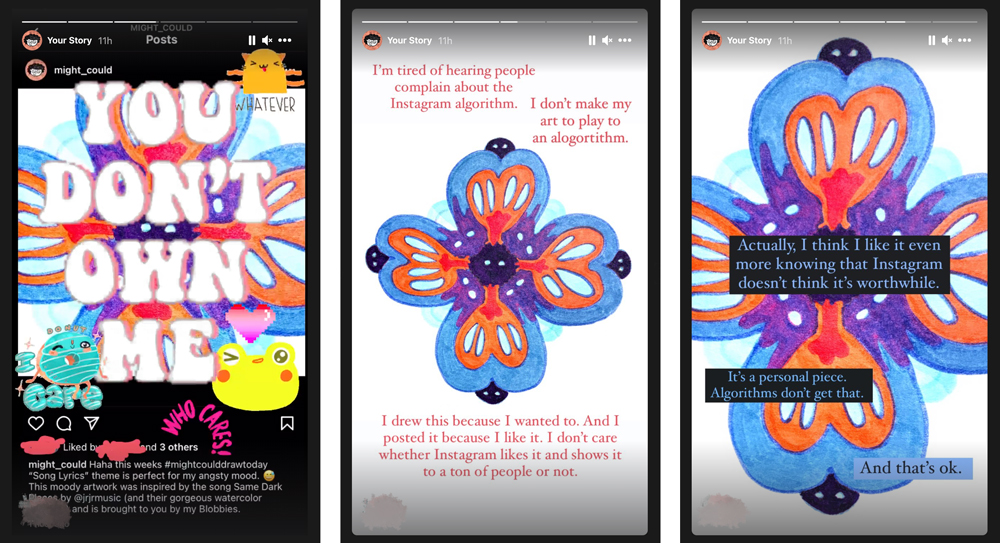
My way of doing that this time was to talk back through an Instagram Story. It felt good because Instagram may have been the platform that sparked these automatic thoughts, but I could also use Instagram to override them.
It feels a lot like standing up to a bully and telling them what you really think. It takes the power away from them. This bully tries to convince me that my drawing is bad, that no one likes it, and that I made a mistake in posting it, or even making it at all. But I’ve slowly learned that the bully’s wrong, y’all.
Instead of getting pulled down in a negative spiral, I was able to plant my feet back in reality—not the reality Instagram wants me to be in, where I pander to the trending algorithm—the reality I want to be in. I was able to throw out those automatic thoughts in favor of what I really believe to be true.
Because if there’s one thing I truly believe with all my heart, it’s that all art is good—every single piece. Every drawing is worth making. Every doodle has value. Instagram can yell and stomp and pout and try to control what I make and what I share, but I’mma tell you what—I am more in tune with my art and its value and its worth than any algorithm or any person ever could ever be.
I am the one making my art.
I am the one sharing my art.
And I’ll do what I want.
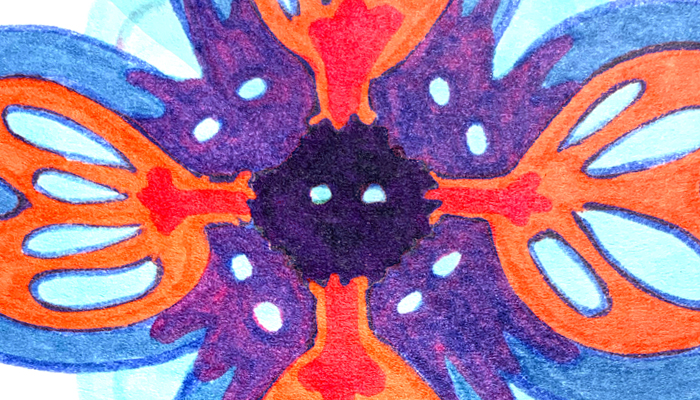
❓What about you?
What’s your experience sharing art on Instagram? How do you handle the ups and downs of posting? How do you combat your automatic thoughts? How can you take back control of your art?
Join the group discussion in Might Could Studiomates to share your thoughts!
